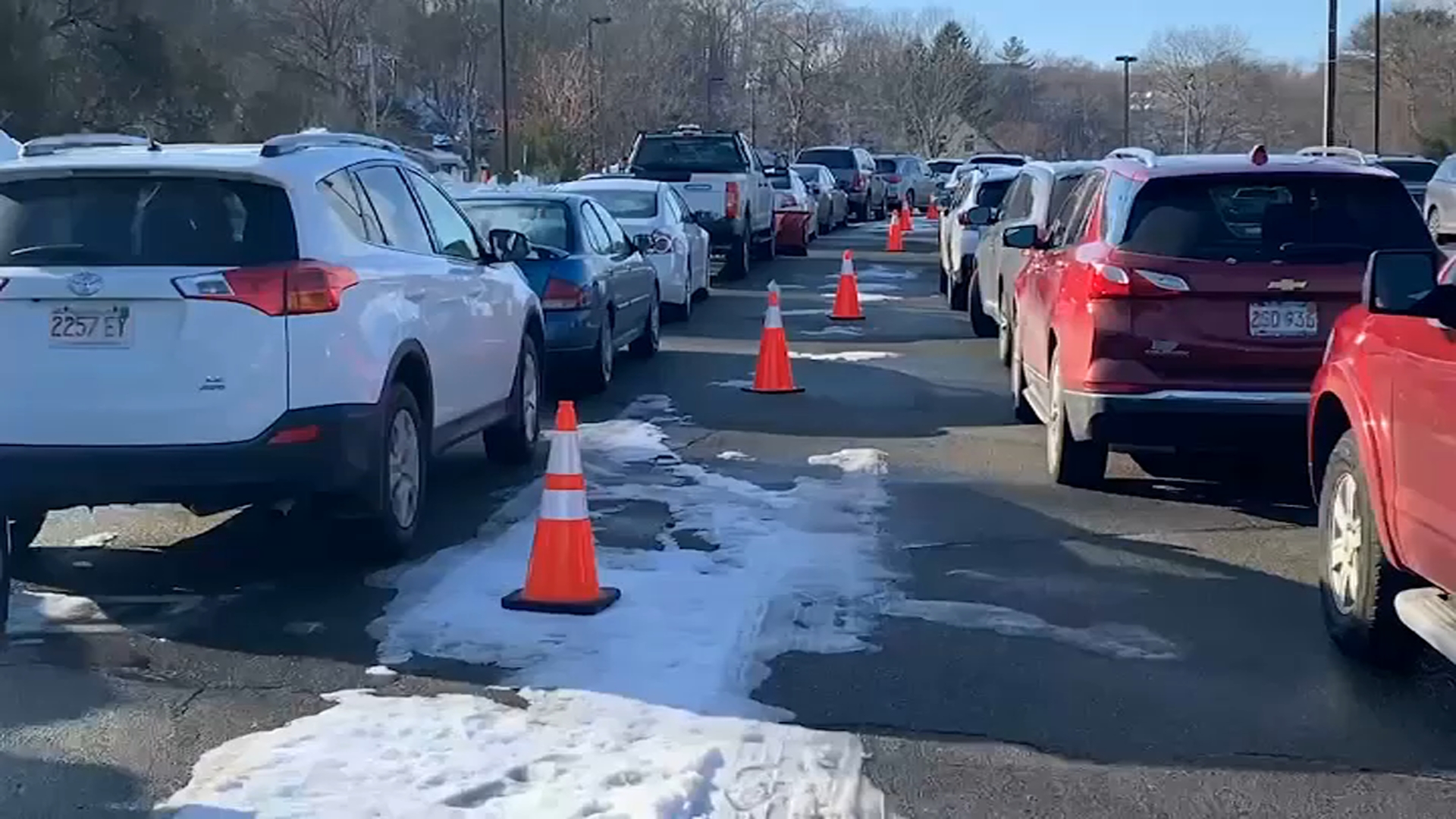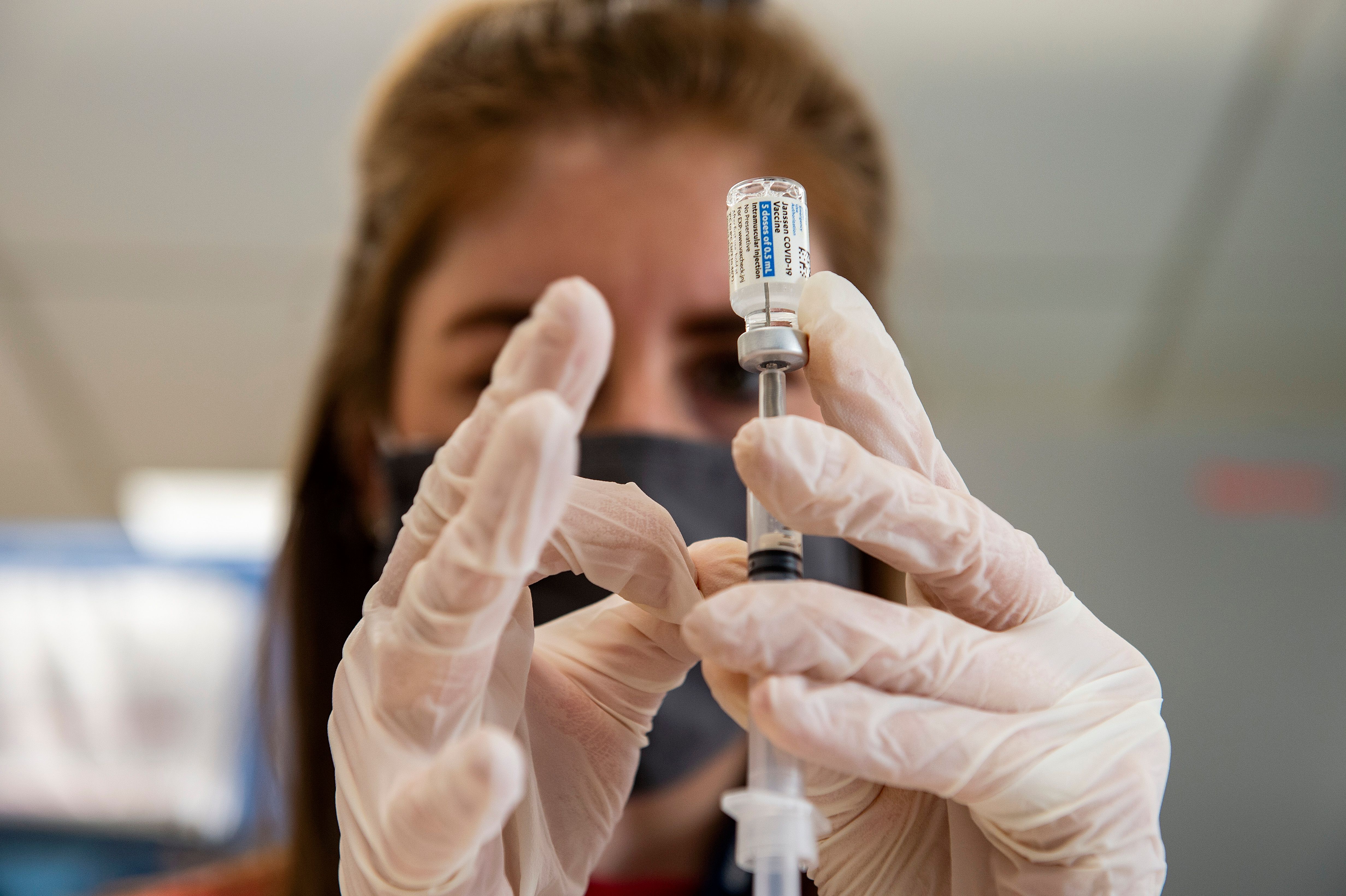On March 10, 2020, Gov. Charlie Baker declared a state of emergency as cases of COIVD-19 began to spike in Massachusetts. In the year since, more than 15,000 people have died and a half a million people contracted the disease in Massachusetts alone.
Life, as we knew it, completely changed. Students across the state were suddenly forced into remote learning and many parents juggled supervising them while working from home. People are supposed to wear masks wherever they go. Businesses operate under various restrictions. Public places are cluttered with plastic dividers, hand sanitizer and social-distancing reminders.
WATCH ANYTIME FOR FREE
>Stream NBC10 Boston news for free, 24/7, wherever you are. |
Here's a look at how it all unfolded in Massachusetts over the past year.
February 2020: 1st Case Found
Get updates on what's happening in Boston to your inbox. Sign up for our >News Headlines newsletter.
The first case of COVID-19 in Massachusetts was announced on Feb. 1, 2020. The patient, a UMass Boston student who had recently traveled back to Boston from Wuhan, China, was the eighth diagnosis in the U.S. and the first on the East Coast.
The White House declared a public health emergency and the World Health Organization declared a global health emergency over the outbreak. Travel restrictions to the U.S. were announced for some foreign nationals, with screening boosted at airports around the country, including Boston's Logan Airport.
March 2020: Biogen, State of Emergency, Stay-At-Home Advisory, 1st Death
More than 100 people from around the world convened at the Boston Marriott Long Wharf hotel for a biotech leadership conference led by the Cambridge-based biotech company Biogen.
The conference would quickly become a super spreader event, launching the COVID-19 outbreak in eastern Massachusetts and causing as many as 330,000 cases of the coronavirus worldwide, according to a study published in the journal Science.
Gov. Charlie Baker declared a state of emergency in Massachusetts. Public and private elementary and secondary schools were ordered to close and gathering sizes were limited. Baker ordered non-essential businesses to close and issued a stay-at-home advisory. The Boston Marathon was also postponed.
The first coronavirus-related death was reported in Massachusetts. He was an 87-year-old veteran who lived in Winthrop.
April 2020: Pats Fly in PPE, Contact Tracing Begins
The New England Patriots jet flew 1.7 million N95 masks to Boston from China after owner Robert Kraft bought them to help hospitals in Massachusetts and New York. Meanwhile, Baker unveiled a first-in-the-nation contact-tracing collaborative to better track the spread of coronavirus.
Baker also announced a plan for a 1,000-bed field hospital to be built at the Boston Convention and Exhibition Center, to follow one built at Worcester's DCU Center arena.
Massachusetts surpassed 1,000 deaths from coronavirus, with almost 30,000 cases statewide. Baker ordered Massachusetts school buildings to remain closed for the remainder of the school year.
Meanwhile, health care workers at the Holyoke Soldiers' Home raced to curb the spread of the disease as state officials investigated what had become the deadliest outbreak at a long-term care facility in the U.S. Seventy veterans had died after contracting the coronavirus at the time.
May 2020: Mask Mandate, Phased Reopening Begins
An emergency order requiring face coverings in public took effect in Massachusetts as the state battled to control the outbreak.
Baker unveiled his reopening plan, which included four phases: Start, Cautious, Vigilant and the "New Normal."
The first phase allowed manufacturing and construction businesses as well as places of worship to reopen with strict social-distancing restrictions in place. Lab and office spaces, along with a limited number of services businesses such as hair salons, pet groomers and car washes, were also allowed to open at the end of May.
June 2020: Entering Phase 2 of Reopening
Three months after shuttering their doors due to the coronavirus pandemic, restaurants in Massachusetts were allowed to resume indoor dining as the state eased restrictions.
Massachusetts reactivated more sectors of its economy as the state entered Phase 2 of its plan to reopen. Close-contact business such as nail salons and tattoo parlors were allowed to resume operations with safety precautions in place. Offices could increase capacity from 25% to 50%.
Meanwhile, Baker announced a series of reforms and legislative proposals after a scathing report detailed "utterly baffling decisions" that exacerbated the COVID-19 outbreak at the Holyoke Soldiers' Home.
Massachusetts released long-awaited state guidelines outlining what school might look like for teachers and students in the fall.
July 2020: Entering Phase 3 of Reopening
At the start of the month, Phase 3 went into place everywhere in Massachusetts except Boston, which joined the rest of the state one week later. Baker noted that this was the riskiest phase yet, and it would be the last phase Massachusetts would enter for a long time.
Phase 3 allowed facilities such as casinos, fitness centers, gyms, movie theaters and museums to reopen with safety protocols in place, including a 40% occupancy limit.
Meanwhile, the number of active COVID-19 steadily climbed for nearly the entire month while Massachusetts settled into the third phase and planned for the approaching school year.
August 2020: Reopening Pause
Baker pumped the breaks on reopening the state's economy and created a new COVID enforcement team in response to an uptick in coronavirus cases. That meant the state would refrain from entering the second step of Phase 3 of the reopening plan and reduce the outdoor gathering limit from 100 to 50.
The administration began publishing weekly data showing town-by-town infections rates on a map and assigning every community a color based on the level of infection and spread detected by testing.
Additional state support included targeted intervention and inspections, enforcement, including fines, cease and desist orders for businesses and organizations in violation of COVID-19 orders and increased access to federal funds.
School districts across Massachusetts began releasing plans for the 2020-2021 school year.
September 2020: Low-Risk Communities Continue Reopening
Lower-risk communities in Massachusetts moved to Step 2 of Phase 3 of the state's reopening plan after staying put since July, allowing activities to resume for indoor and outdoor recreation businesses and larger outdoor gatherings.
Baker also relaxed restaurant guidelines, increasing seating from six to 10 people per table and allowing for bar seating.
There was a rise in cases and hospitalizations at this time as students returned to college campuses and elementary, middle and high schools across the state. Yet Massachusetts education officials began putting pressure on schools in low-risk coronavirus communities to bring students back into the classroom.
October 2020: Cases on the Rise
More than half of the communities in Massachusetts were deemed high-risk for community spread of the coronavirus.
Massachusetts has changed how it measured coronavirus metrics over time, and this month brought two significant revamps, including data on coronavirus clusters in institutions including jails, colleges and nursing homes.
That data showed that 2,945 coronavirus clusters had been detected between Sept. 27 and Oct. 24. The vast majority were associated with households and led to 8,208 confirmed cases.
November 2020: New Mask, Stay-at-Home Orders
In response to a resurgence of COVID-19 in Massachusetts since summer, the Baker administration announced several executive orders.
The Republican governor implemented an updated mask order, requiring everyone over the age of five to wear a mask in public — even when standing more than six feet away from others.
People were urged to stay home at night, restaurants and other businesses were required to close by 9:30 p.m. and indoor gatherings were once again limited to 10 people across the commonwealth.
In updated guidance for Massachusetts schools, all communities that were not considered high-risk for coronavirus were expected to have students learning in-person and even the highest-risk red categories were urged to consider a hybrid model instead of going fully remote.
December 2020: Reopening Rollback, Vaccine Distribution Plan Revealed
With the spread of COVID-19 continuing to accelerate, Baker announced that the entire state would roll back its reopening plan to Phase 3, Step 1, which resulted in the closure of certain businesses and a reduction of capacity limits for most.
Baker urged Massachusetts residents not to gather in groups during the holidays, saying such activities over Thanksgiving led to a significant spike in coronavirus cases.
Baker also released Massachusetts' vaccine distribution plan.
The state received its first shipment of COVID-19 vaccines, which went toward frontline medical workers. The state’s first shipment of 59,475 doses of the Pfizer vaccine was ordered from the federal government and was delivered directly to hospitals across eight counties, as well as to the state Department of Public Health Immunization lab.
January 2021: Restrictions Relaxed, Vaccine Rollout Begins
The state began administering vaccine doses to first responders — including police, firefighters and EMTs as well as workers in congregate care facilities.
Amid growing frustration with the state's vaccination efforts, Baker detailed plans to have 103 public vaccination sites open with an online map and registration portal ready for eligible residents to make appointments.
The state's first mass vaccination site opened at Gillette Stadium.
Massachusetts relaxed some coronavirus restrictions that were adopted in November as new cases surged. Restaurants, movie theaters and many other businesses were allowed to remain open past 9:30 p.m. and guidance that urged people to stay at home from 10 p.m. until 5 p.m. except for work or other essential travel was lifted.
Additionally, Massachusetts health officials announced its first confirmed case of the more contagious UK COVID variant.
February 2021: More Relaxed Restrictions Amid Rocky Vaccine Rollout
Massachusetts began vaccinating residents 75 years and older at the start of the month as it entered the second phase of its COVID-19 vaccination plan amid a rocky rollout. Baker launched a COVID-19 vaccination appointment hotline aimed at helping senior citizens, many of whom struggled to navigate the state's website.
About two and a half weeks later, residents 65 and older and those with two or more specific medical conditions became eligible to get the vaccine. The Massachusetts vaccination finder website crashed when many in the demographic, comprised of about one million people, tried to sign up for appointments online.
The state's second mass vaccination site officially opened at Fenway Park.
Meanwhile, capacity limits increased for businesses including restaurants and gyms. Baker relaxed some restrictions, citing encouraging trends in the state's COVID-19 data, including a decline in hospitalizations and case counts.
March 2021: Enters Phase 3, Step 2 Reopening
Massachusetts relaxed more restrictions on restaurants, live performance venues and other businesses as the state moved into Phase 3, Step 2 of its reopening plan.
New daily cases of COVID-19 have dipped to their lowest levels since October and Massachusetts confirmed it has fully vaccinated more than half a million residents.
Baker announced teachers would become eligible to register for a coronavirus vaccine a day after President Joe Biden urged states to prioritize vaccinations for teachers.
The Johnson & Johnson single-shot COVID vaccine was given out for the first time in Massachusetts at Tufts Medical Center.
What's Next?
The state moves to Phase 4, Step 1 of its reopening plan on March 22, which allows large indoor and outdoor venues to start accepting fans and attendees, if local jurisdictions allow.
The Bruins shared an announcement from TD Garden saying fans could return that day at 12% capacity, and the Red Sox said they plan to have fans for the 2021 season, as well.
Both Fenway and Gillette currently serve as two of the state's mass COVID-19 vaccination sites. Baker announced that the Fenway Park mass vaccination site will close March 27 and be replaced by a new mass vaccination site at the Hynes Convention Center in Boston's Back Bay neighborhood.
Gathering limits for event venues in Phase 4, Step 1 will be relaxed to accommodate up to 100 people inside and 150 outside. Private gathering limits will remain at their current levels of 25 outdoors and 10 indoors.



